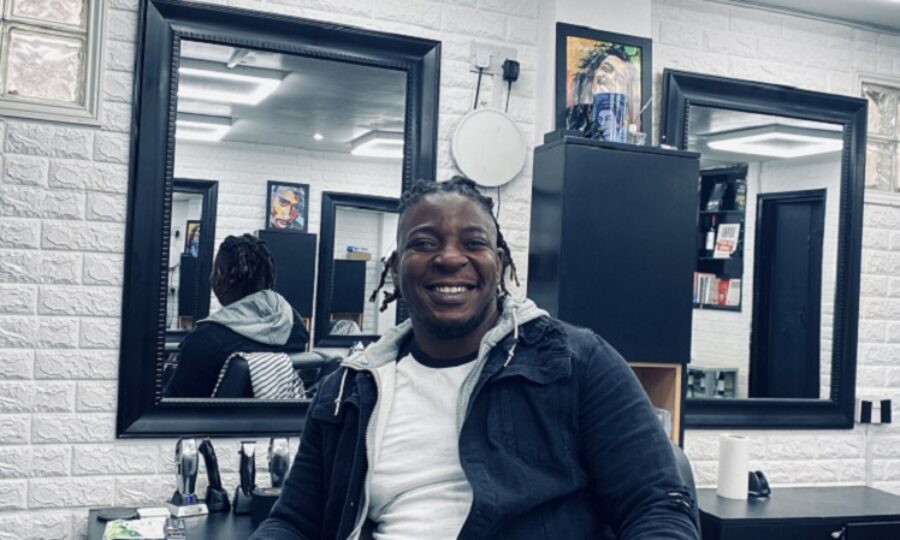In conversation: Mitch Fly

Owner of barbers Fade Fabric on the unique role of barbers in encouraging young Black men to talk about their mental health.
You’re part of the council’s Young Black Men and Mental Health initiative: a training scheme for barbers to help them be more aware of mental health issues and feel more confident when talking to their customers about the challenges they face. What motivated you to take part?
As a barber, I speak to so many different people, from all walks of life, who tend to unpack while sitting in the chair. There is a unique relationship that we share with our clients. This motivated me to find out how I could contribute to my community in a positive way.
This initiative is something I am passionate about and it’s proving to be beneficial. It is about empowering key individuals within the community to really make a difference.
You recently completed the free mental health first aid training. What did it involve?
The training involved group-based learning, as well as reading. It was very impactful and insightful, and I have gained lots of knowledge about maintaining and looking after my own mental health. Being mindful of all the different kinds of challenges we face on a day-to-day basis and the coping mechanisms you can use are tools that can be implemented to improve your own life, as well as used to help others.
I found the training absolutely amazing. I have already used the skills and implemented some of what I’ve learnt with my clients. It’s such a great tool for better communication. I would definitely recommend it – not only to barbers and hairdressers, but to everyone. I believe it would contribute to making our world a better place.
How are hairdressers and barbers uniquely positioned to support people?
I think what I and most people within our industry do, be it consciously or unconsciously, is create a space and environment that allows people to talk freely, without judgement. We are not only stylists; we can also be seen as a confidant, a mentor, an extended family member or a friend.
There is also a confidence that exudes when your hair is on point. When you look good, you feel good, and that definitely has an impact on how you show up in the world. I really believe that most of us with African heritage see the history of our hair as spiritual and cultural. I think that belief has carried on through the generations and is still with us today. In the Black community, hair and how it’s styled is almost a signature stamp. It represents who you are, so it’s our responsibility as the stylist to deliver. When we get it right, our clients walk out the chair feeling good.
Your work keeps you on your toes. What do you do for your mental health and wellbeing?
I deal with a variety of people on a daily basis, which opens me up to different ways of thinking and problem solving. We often end up having discussions and healthy debates, which I think challenges the way people think and brings to the surface misconceptions. It provides people with food for thought, in a safe environment. I also dance kizomba, which helps me unwind while keeping active, and attend the gym as much as I can.
Why is talking about mental health important?
As a Black man, especially in the environment I live in, mental health is stigmatised. It’s seen as a weakness and not something that is taken as seriously as it should be. I want to reinforce the idea that the term mental health should not be branded a negative thing. It should be embraced and focussed on just as much as physical health. Talking about mental health is also empowering. It shows a great understanding and awareness of self, and what needs to be done to try and keep a clear and positive mindset.
Find out more about mental health support in Islington and public health training on the Islington Council website.
